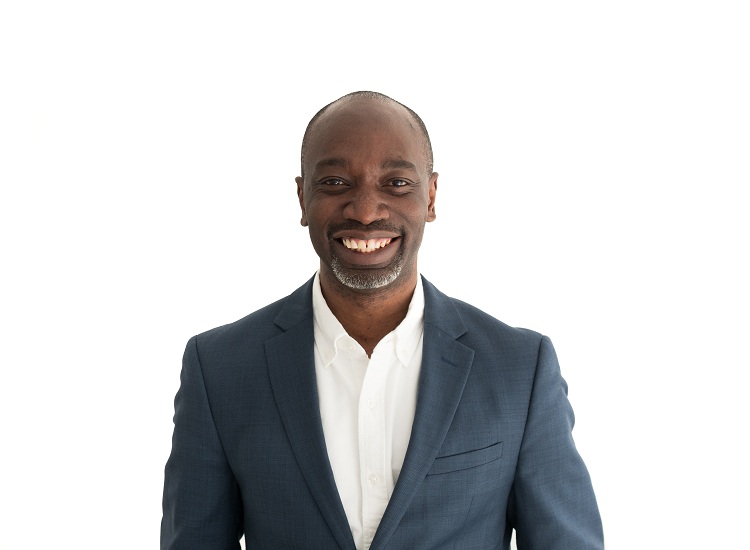Broadcasting
What Can the Rest of the World Learn From Africa’s Approach to Tech and Innovation

By Ndagi Job Goshi, GM of Liferay Africa
When it comes to listing the regions that have embraced and taken the biggest advantage of digital transformation, most commentators wouldn’t put Africa anywhere near the top. And purely based on metrics, they would be right. According to BCG, Africa trails other regions of the world in digital penetration, usage, and capabilities, and its companies are generally less mature than those in more developed markets.

That said, digital maturity levels across the continent are rising rapidly. And, outside of the broad picture, there are examples of African companies using digital transformation in exciting and innovative ways. Within these examples are lessons that can be applied to the rest of the world, not least because they show that digital transformation is an ongoing process and not a “once-and-done” exercise.
You can compete with big multinationals
During the 2010s, the “Africa Rising” narrative — brought about by unprecedented economic growth during a period of relative political stability — saw many multinational companies either enter the continent or expand their existing operations. Despite their considerable heft, however, many have struggled to compete with local companies.
That’s because these companies have been able to combine technology with on-the-ground knowledge to build a real competitive advantage.
Whatever troubles it’s faced in recent years, mobile operator MTN (itself an enabler of digital transformation) was able to enter Nigeria at a time when other international carriers were too afraid to. The other companies that had a chance to bid on spectrum in Nigeria were more focused on the country’s risks than on its opportunities, and as a result they held back. MTN was able to use its experience and data gathering capabilities to establish and grow a massive footprint. Today, MTN is the largest mobile operator in Nigeria and has 64-million internet subscribers.
Globally, smaller companies can similarly use local knowledge, coupled with a focus on digital transformation, to remain competitive amongst much bigger players.
Utilise the technology at hand
For years, many column inches were devoted to how Africa’s high mobile penetration rates (as high as 149% in parts of Sub-Saharan Africa) would allow it to leapfrog more developed markets. More recently, there was a sense that this promise was unfulfilled and that Africa had missed out on its first-mover advantage.
There is evidence, however, that this disparaging view may have been misplaced. More and more African tech startups are being acquired by international companies. Their technologies are then baked into their acquirer’s offerings. Many of these technologies are mobile-based and are built off the back of Africans being willing to experiment and adopt new technologies that people in more developed markets might be willing to try.
Startups aren’t the only ones innovating either. Financial services giant Discovery perfected its Vitality rewards programme in South Africa, progressively integrating it with new technologies (including smartphone apps and wearables), sometimes years before its competitors. This success then allowed it to expand the programme internationally to more than 20-million users in countries like the UK, Canada, and China.
Customer experience is always crucial
When it comes to the areas in which African companies lead their international competitors on BCG’s digital maturity index, one observation stands out:
In businesses where customer-centricity is key (such as banking and telecoms), African players compete more effectively.
It’s also hardly surprising that these are two sectors where Africa has led the world when it comes to technology-led innovation.
Their success shows how important customer experience is to digital transformation. Some companies might approach digital transformation as a technology project. Implement all the right technologies, the thinking goes, and the organisation will be transformed. When they inevitably don’t get the rewards they were hoping for, they might wonder why they spent all that money and revert back to old ways of doing things.
In truth, digital transformation is more about a mindset shift within organisations than it is about technology adoption. That is, organisations need to embrace the idea that technology can help them better understand and serve the customer, allowing them to create personalised experiences rather than just lumping new technology onto old ways of doing business.
Embracing innovation
Ultimately, while Africa may be less digitally mature than other markets, there can be no doubt that businesses on the continent are unafraid to embrace technology and innovation. And, in the customer-centric ways in which they’ve done so, despite facing adversity and strong headwinds, there are lessons for the rest of the world to learn from the tenacity and ingenuity birthed and nurtured in the African soil.
Broadcasting
Big Brother Naija Season 10 to Premiere July 26 with Record ₦150m Grand Prize

MultiChoice Nigeria, today announced the highly anticipated return of Africa’s biggest reality television show, Big Brother Naija, for its landmark 10th season. Set to premiere over two nights on Saturday, July 26 and Sunday, July 27, 2025, the new season promises 10 weeks of captivating drama, strategic gameplay, and unparalleled entertainment, culminating in the grand finale on Sunday, October 5, 2025.

The audition process for this milestone season was meticulously designed to unearth the most engaging and dynamic personalities from across Nigeria. Audition registrations were held from May 3rd to May 7th, 2025, and saw an overwhelming response, followed by rigorous in-person auditions conducted in Lagos, Abuja, and Enugu from May 16th to May 18th, 2025.
Speaking on the upcoming season, Busola Tejumola, Executive Head, General Entertainment, MultiChoice Group, expressed her excitement: “Today we are not just announcing another season, we are celebrating a legacy.”
While the official theme for Season 10 will be unveiled on the premiere night, viewers can anticipate a fresh wave of excitement. The beloved Ebuka Obi-Uchendu is returning as host, guiding viewers through every twist and turn of the season. This 10th season also has the highest prize at stake – valued at a whopping N150million.
Fans can catch the premier live on July 26 and 27 exclusively on Africa Magic Showcase, Family and Showmax at 7 PM WAT. The Sunday live eviction shows will also air exclusively on these channels. The 24/7 live stream will be available on DStv Channel 198, GOtv Channel 49, and on Showmax.
“BBNaija has become more than just a television show; it is a living, breathing cultural force. It has given voice to a new generation of talent, creatives, entertainers, and the influencer community, and it has refined what homegrown entertainment can achieve when it is done at scale with intention and ambition,” added Tejumola.
With a two-night opening live show for Big Brother Naija Season 10, the season is poised to build upon the legacy of its predecessors, with fans expecting a more dynamic and entertaining experience. Still speaking on what the season holds Dr. Tejumola said “Today we are not just announcing another season, we are celebrating a legacy. From the very first time we introduced Big Brother Naija in 2017, we had an inkling that we had something special. What we couldn’t fully imagine then is how deeply the show would resonate not only in Nigeria but across Africa and in the global diaspora, where our stories continue to connect people to home.”
This milestone season for the iconic show is not without the usual lineup of sponsors. The gold sponsor for the 10th season of the show is Guinness Nigeria. Other sponsors include Smirnoff, Gordons, HFM, Pepsi, Aquafina, Supakomando, Tolaram Group, Bet King, Golden Penny Foods, Haier Thermocool, Checkers custard, and Innoson Motors, among others.
Viewers can catch all the live action and special broadcasts on DStv Channel 198, GOtv Channel 49, and Showmax. The live Sunday eviction shows will air exclusively on Africa Magic Showcase (DStv Channel 151, GOtv Channel 8), Africa Magic Family (DStv Channel 154, GOtv Channel 7) and on Showmax.
DStv and GOtv subscribers can also watch the show on the go using the DStv and GOtv Stream apps available on the Google Play Store and IOS App Store.
Broadcasting
GEFAS to Launch Innovation Hub in Anambra, Backs Soludo’s Digital Vision

Geeks and Founders Alliance for Soludo (GEFAS), a tech-driven network of young professionals, is set to unveil its operational hub in Anambra State as part of efforts to deepen digital engagement and community outreach.

The launch, scheduled for July 17, 2025, will take place at 10 Uche Ekwunife Crescent, Iyiagu Estate, Awka, and is expected to serve as a nerve centre for collaboration, innovation and support for Governor Chukwuma Soludo’s smart city agenda.
Convener of GEFAS, Mr Fred Agbata, said the initiative reflects the group’s commitment to digital progress and grassroots mobilisation.
“This space reinforces our support for Governor Soludo’s vision of a smart, prosperous Anambra. It’s also a demonstration of what young innovators can achieve when united behind a bigger goal—the re-election of Governor Soludo,” he said.
Agbata added that the hub would provide a platform for tech enthusiasts, entrepreneurs and creatives to co-create solutions that address local challenges and promote inclusive development.
GEFAS has called on stakeholders, youth groups and members of the public to attend the launch and engage with the opportunities the space will offer.
Broadcasting
Over 5,600 Pupils to Benefit as ATC, ProFuturo Partner on Tech-Driven Learning

American Tower Corporation (ATC) Nigeria and the ProFuturo Foundation have announced a strategic partnership aimed at transforming the educational sector through digital innovation and technology.

The programme, which is being implemented in conjunction with the Kukah Centre, is expected to benefit over 5,600 school children and 34 teachers across 11 schools in Kano, Kebbi and Taraba states.
The initiative is part of a broader global collaboration between American Tower and ProFuturo Foundation, targeting education gaps in seven African and Latin American countries.
Speaking at the signing ceremony, ATC Nigeria Chief Executive Officer, Mr Pieter Van Der Westhuizen, said the partnership was aligned with the company’s Digital Communities programme, which facilitates technology-driven learning, financial literacy for adults and access to healthcare services in underserved areas.
“At ATC Nigeria, we are proud to support this impactful collaboration, which brings digital tools directly into classrooms. This partnership is not just about equipment—it’s about giving children the future they deserve,” he said.
General Manager of ProFuturo Foundation, Ms Magdalena Brier, described the partnership as a crucial step towards bridging the digital divide and empowering vulnerable communities.
“This alliance reinforces our mission to transform lives by improving access to education and digital tools. Every child and teacher reached through this programme is a testament to what we can achieve together,” she said.
Each school will be equipped with a digital learning kit, which includes computers, tablets, routers, projectors and other essential components tailored to foster interactive learning—even in areas with limited connectivity.
The initiative seeks to strengthen innovative teaching practices and promote inclusive education through digital transformation, with active support from local authorities who were present at the official launch.

 General News2 days ago
General News2 days agoPrateek Suri CEO Maser Meets Zambia’s Education Minister to Propel Student Housing and Education Projects

 News1 day ago
News1 day agoUN Appoints Sa’id, Nigerian to Nuclear Panel

 E-Financial1 day ago
E-Financial1 day agoUBA’s LEO Becomes Africa’s First Chatbot to Enable Cross-Border Payments

 E-Business1 day ago
E-Business1 day agoNIMC Enrolls 122m for NIN, Cuts Extortion by 40 Percent

 Telecom1 day ago
Telecom1 day agoMTN Urges Nigerian to Regards Telecom Infrastructure as National Assets

 General News1 day ago
General News1 day agoAppeal Court Nullifies Registration of ‘KPMG Professional Services’

 E-Financial1 day ago
E-Financial1 day agoPolaris Bank Equips 500+ Journalists with Digital Tools for Modern Storytelling

 E-Financial1 day ago
E-Financial1 day agoSEC to Introduce USSD Codes to Fight Ponzi Schemes













